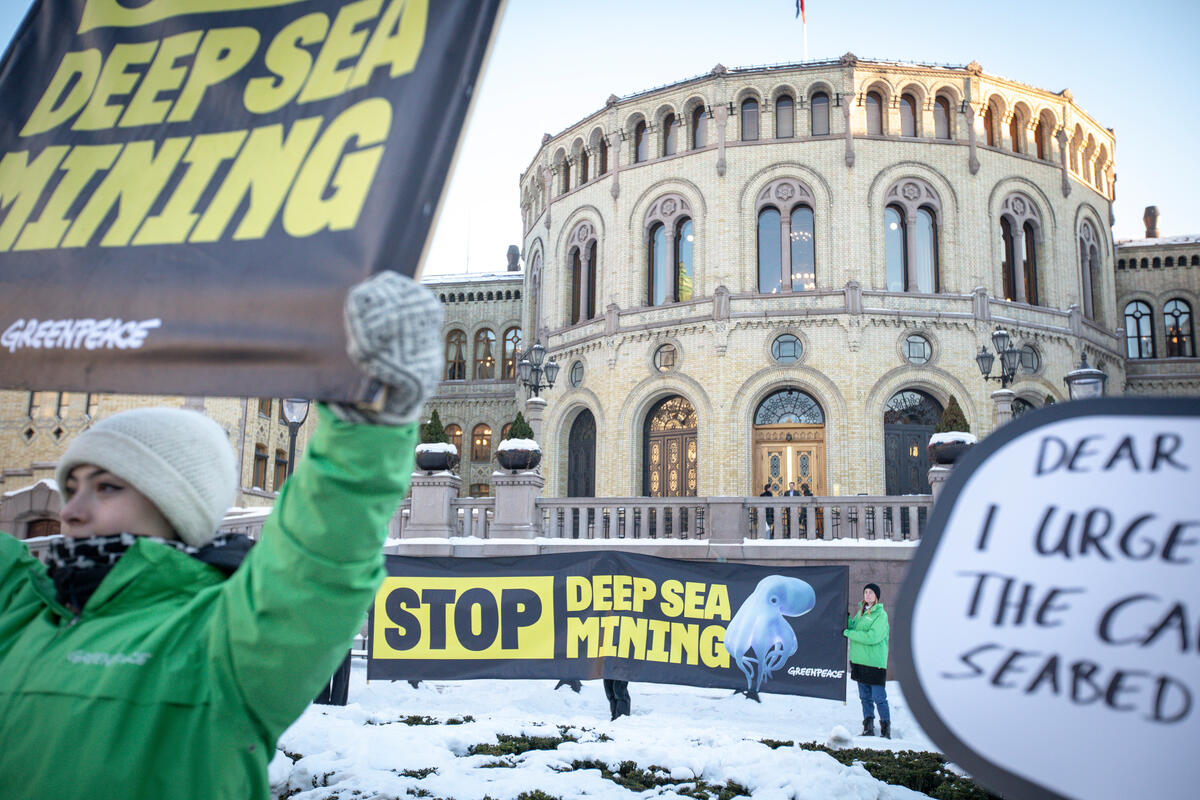Amsterdam, Netherlands – One of the world’s largest fish canneries, Bolton Food, has today announced its new far reaching policy designed to reduce its environmental impacts, following years of pressure by Greenpeace activists, supporters and concerned individuals across the globe. [1]
The company, which includes Rio Mare and Saupiquet in its brands, has committed to source 50% of its tuna using selective fishing methods (pole and line, handline and purse seiners without FADs) by 2020, an increase of 22% from current level. It will also reduce its use of destructive fishing by cutting back its use of FADs — the floating fishing tools responsible each year of the killing of huge numbers of endangered sharks, marine turtles and seabirds.
Its new policy will see it set strict reduction targets on suppliers’ vessels, with a maximum of 300 FADs to be used a year, in line with earlier commitments by Thai Union. [2] Bolton pledges to impose even tighter restrictions on its own vessels where in addition to reduction of FADS, the use of FAD supply vessels will be forbidden.
Greenpeace International oceans campaigner, Oliver Knowles, said:
“Bolton’s new policy clearly shows momentum to improve standards among the biggest tuna players in the world, after the landmark set of environmental and social commitments agreed by Thai Union in 2017. Reducing use of drifting FADs, committing to end use of so-called FAD supply vessels for its fleets and replacing this with lower impact fishing is a solid step in the right direction. This move should increase pressure on other major tuna companies to follow suit by cutting their FAD use. The growing global movement of people fighting to protect our oceans will be watching Bolton closely to ensure they deliver on their ambitious promises.”
Greenpeace Italy oceans campaigner, Giorgia Monti, added:
“Today is an important day for thousands of consumers that for years have asked companies to choose to do more to protect ocean life. We are very pleased that Rio Mare has finally decided to accept the challenge and make ambitious commitments to reduce the most destructive fishing methods. Now they need to turn words into action to become the most sustainable tuna company in the world.”
This comes a year after Thai Union, another key player in the tuna industry, committed to implement a long-term strategy to improve the environmental sustainability and social standards in its supply chains. This has seen the company taking steps to increase the supply of lower impact fishing techniques while reducing the use of destructive FADs on the purse seiners it sources from and improving practices and conditions for fishing crews.
ENDS
Notes:
[1] link to Bolton Food’s Report: www.responsiblequality.com
[2] link to Thai Union’s commitment
[3] link to background context on the overall tuna campaign
Contacts:
Greenpeace International Press Desk: [email protected], +31 (0) 20 718 2470 (available 24 hours)



